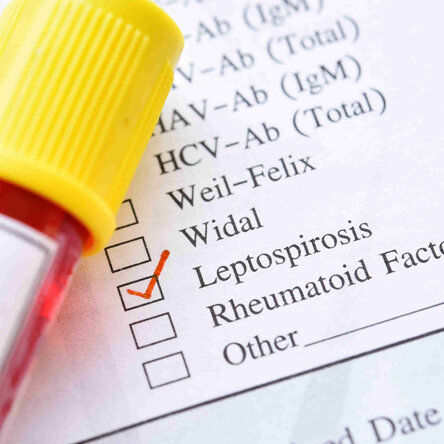Franklin Vets
Franklin Vets - excellence in veterinary care for dairy, farming, lifestyle, equine and household pets. BESTPRACTICE ACCREDITED NZ.
Your account is powered by Storbie. To edit your profile visit my.storbie.com
Your account is powered by Storbie. To edit your profile visit my.storbie.com

Make sure your dogs are vaccinated against this, it’s the best protection.
Leptospirosis is a serious, infectious disease in dogs that damages many tissues including the kidney and liver.
The main source of infection for dogs is urine from infected rats. Stock on farms can also potentially be a source of infection. The main way dogs get exposed to the infection is when they drink water or swim in water that has been contaminated by the infected urine from another animal.
The Leptospira bacteria infects the dog when it comes into contact with the dog’s mucous membranes including in the nose, mouth, and eyes, and also through breaks in the skin.
Ponds, rivers, water troughs, puddles, drains and even the dog's own water bowl (if a rat has urinated in it) can all be sources of infection.
A very important note is that this disease can be passed to humans! Leptospirosis can make people very ill with flu-like symptoms lasting for months at a time, and can even be fatal.
Clinical signs in your dog include fever, weakness, joint pain, vomiting, diarrhoea, frequent urination, discharge from the eyes or nose, and yellowing of the gums, skin and membranes around the eyes. If your dog is showing any of these signs, get your dog to the vet!
Early treatment is essential for recovery and the sooner antibiotics and supportive care are initiated the better the outcome for your dog and your wallet. A dog that is critically ill with Leptospirosis will require intensive nursing care with intravenous fluids and multiple different types of medications, all whilst being isolated – a very expensive exercise.
To prevent your dog from becoming infected (and more importantly you and your family), the single most important thing you can do is to get your dog vaccinated. Early vaccination as a puppy (nine weeks old) with four weekly, then subsequent yearly boosters is the best way to ensure your dog is covered. If your dog is older and isn’t vaccinated, all that is required are two vaccinations four weeks apart, followed by yearly boosters. If you have any questions about the vaccine or Leptospirosis, we can discuss this at your dog’s annual health check-up.
Dr Nick Twyford BVSc MANZCVS (Medicine of Dogs)
Franklin Vets - excellence in veterinary care for dairy, farming, lifestyle, equine and household pets. BESTPRACTICE ACCREDITED NZ.



